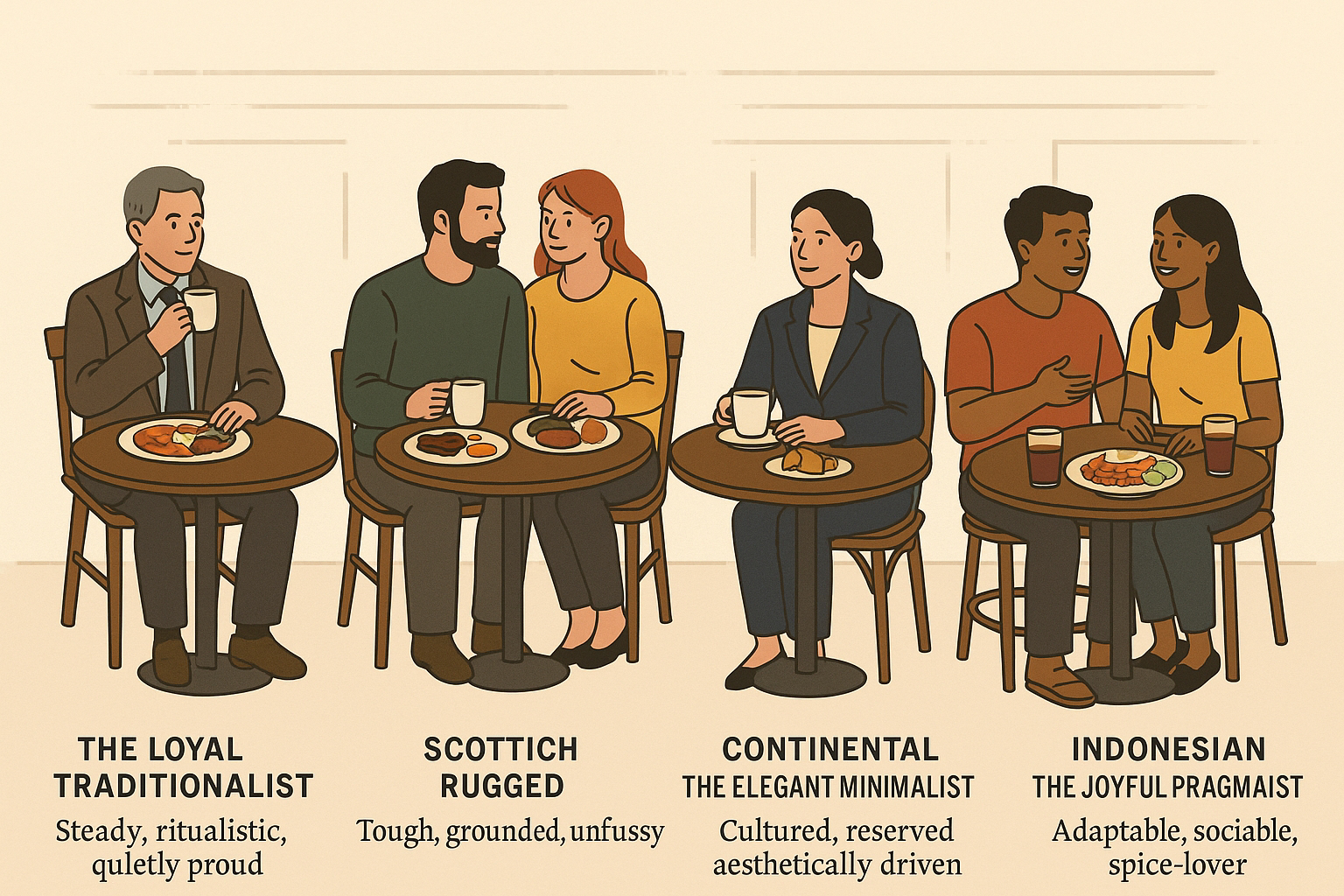
2 June 2025BREAKFAST IDENTITIES1. Introduction: Breakfast as Cultural ExpressionBreakfast is more than a functional start to the day; it is a social and cultural event. The way societies structure, value, and consume breakfast reflects broader ideas of time discipline, social structure, national identity, and globalisation. This paper examines four culturally significant breakfast traditions - English, Scottish, Continental, and Indonesian - to explore...
















